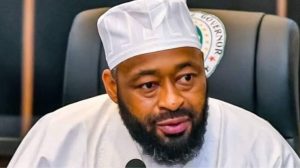Economy diversification: Nigeria charged to reverse over-dependence on oil

A Public Affairs and Economic Analyst, Mr Micheal Abah, a Public Affairs and Economic Analyst, says Nigerian needs to diversify and reverse its overdependence on oil, especially with the outbreak of COVID-19 pandemic.
He said that almost 60 years after independence, Nigeria was at a crossroad economically and needed urgent reforms.
Abah, also an Associate Chartered Accountant decried that the Nigerian economy was not growing fast enough to create jobs that would carter for its teeming population.
He said Nigeria’s GDP growth was about 1.87 per cent annually, which was expected to fall with the outbreak of the pandemic.
Abah said to stop this trend from getting worse, the country needed policies that would drive job creation, unleash the potential of Nigerians and take more people out of poverty.
He said such policies should be aimed at developing the economy of the states to achieve their full potential.
“These policies should advocate greater fiscal federalism with states taking on more responsibilities that will drive business growth including the creation of industrial clusters in the states.
“Fiscal federalism creates an incentive for states to take up the responsibilities for wealth creation rather than wait for monthly hand-outs from Abuja.
“We would be looking at instances where even though oil is mined in the South-South, it is refined in the North-West, ensuring that the benefit of crude oil endowment is felt in the North-West.
“That as a country we add value to our natural resources before we export the same, therefore creating wealth for our countrymen.”
He said every state in Nigeria needed to work at full capacity as a catalyst of growth with healthy competition among states on how best to push the frontier of Nigeria’s industrialisation for the benefit of citizens.
According to him, no state in Nigeria “Is not viable as a stand-alone entity with the resources that abound within them, both human and natural that could be tapped into.
“The best time to plant the seed of Nigeria’s industrial revolution was 60 years ago, the second-best time is now.
“Rather than only Abuja working for Nigerians, we need to leverage the uniqueness of each state with a vision of not exporting any item until we have added value to it,” he added.






